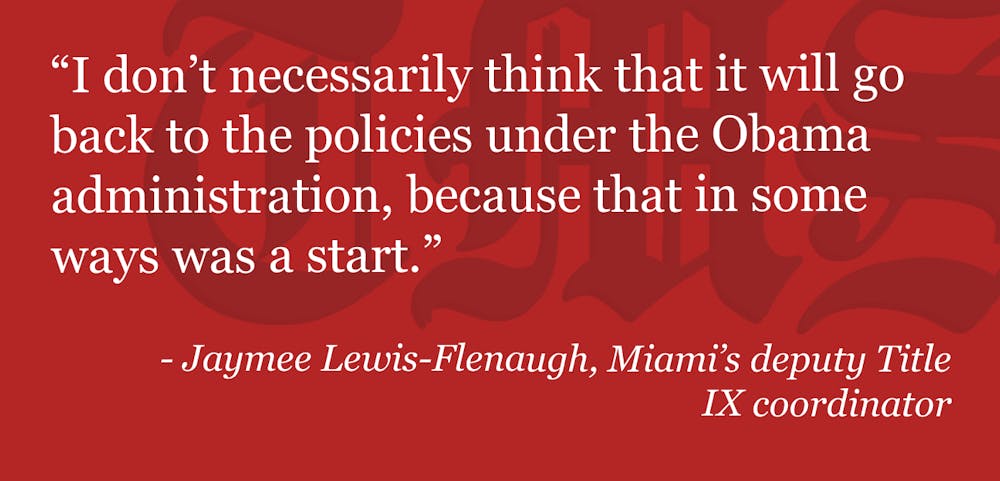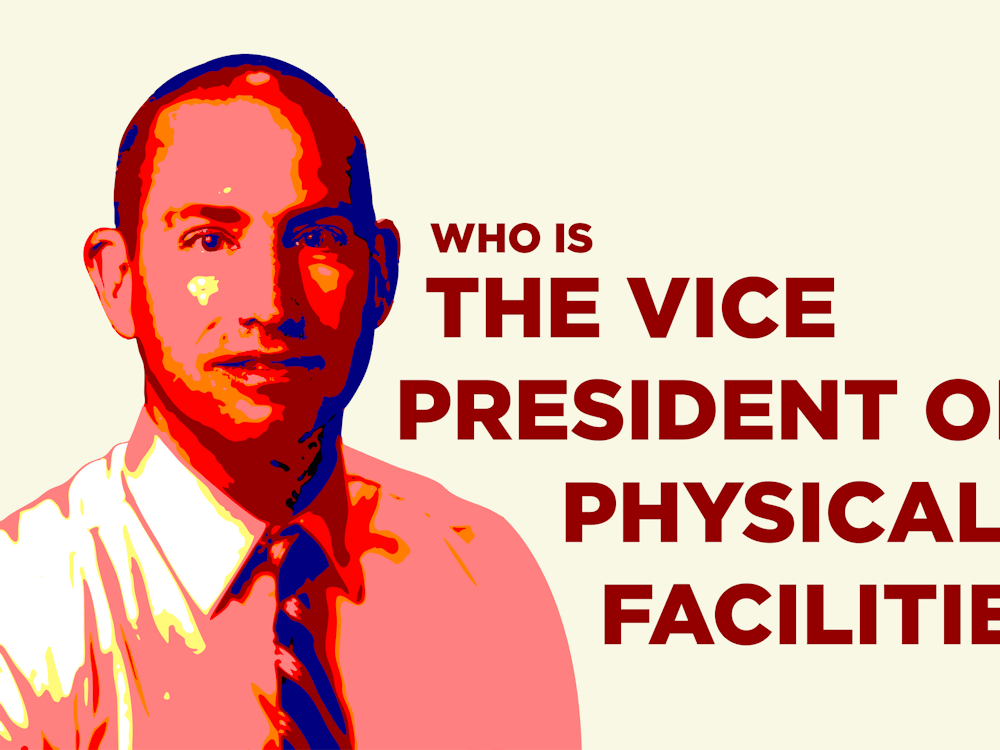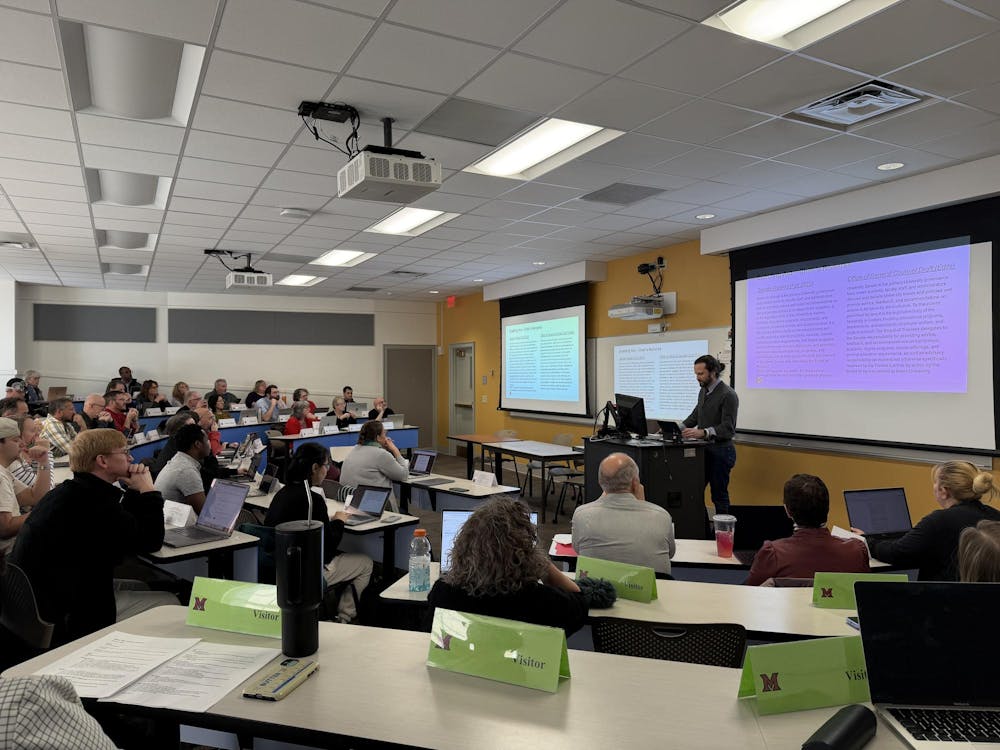President Joe Biden signed an executive order on March 8, ordering the Secretary of Education to review changes made to the Title IX process under the Trump administration. Miami University students and administration await this review in hope for more protection for sexual assault survivors.
Title IX is a federal law that prohibits discrimination on the basis of sex and applies to sexual harassment and sexual assault cases.
On May 6, 2020, former Secretary of Education Betsy DeVos announced changes to Title IX regulations in a move she said would “strike a balance that is fair to all parties.”
"Too many students have lost access to their education because their school inadequately responded when a student filed a complaint of sexual harassment or sexual assault," DeVos said in a statement in May. "This new regulation requires schools to act in meaningful ways to support survivors of sexual misconduct without sacrificing important safeguards to ensure a fair and transparent process."
Some changes DeVos introduced to Title IX include cross examination by advisors and attorneys, universities are no longer required to try sexual misconduct cases that occur off-campus or out of the country, mandatory reporters no longer being required and a more narrow definition of the term “sexual harassment.”
During his campaign, Biden called the Title IX changes an effort to silence survivors and strip them of their rights.
“Survivors deserve to be treated with dignity and respect, and when they step forward, they should be heard, not silenced,” Biden said in a statement. “Today, Betsy DeVos and Donald Trump published a rule that flies in the face of that.”
Biden vowed to put a “quick end” to the rulings.
Jaymee Lewis-Flenaugh, Miami’s deputy Title IX coordinator for student sexual and interpersonal violence, said her role is to be the first response for all student cases of sexual misconduct and interpersonal violence.
Lewis-Flenaugh said she felt Title IX under the Obama administration had “guidelines” on how to handle Title IX cases, while the Trump administration had “regulations.”
One regulation Lewis-Flenaugh mentioned under the Trump administration is hearing officers not being available during Title IX hearings, which are often utilized to support survivors during the process of a hearing.
“Typically during the Title IX hearings, students would have a support person in the space with them, and that person would really be there to provide emotional support through a very difficult situation for everyone involved,” Lewis-Flenaugh said. “Now, that person is no longer allowed to be in the space, which is challenging.”
Enjoy what you're reading?
Signup for our newsletter
Lewis-Flenaugh expects the review to lead to a progressive change.
“I don’t necessarily think that it will go back to the policies under the Obama administration, because that in some ways was a start,” Lewis-Flenaugh said.
Josie Carter, founder of the Sexual Assault Survivor Support (SASS) organization on campus, said she hopes the Title IX policy review will incorporate new ideas instead of simply reverting back to previous ones.
“I think a review would benefit survivors,” Carter said. “I am hoping that with the experience made in the past, we are able to not just revert to old ways but incorporate new ways as well.”
Carter said there were a few issues she would like to see addressed after Biden’s review.
“I don’t like the way that Title IX limits location,” Carter said. “The reporting process is completely different for off-campus [incidents]. I think it should fall under the same legal process.”
During the 2019-2020 school year, almost half of the sexual assaults reported to the Miami University and Oxford Police Departments occurred off campus.
Carter said she hopes the review results in change that can help survivors of sexual misconduct seek justice.
“I agree with the perspective that [DeVos’s changing of Title IX] makes it harder for survivors – it’s incredibly hard already, especially with the stigma,” Carter said. “I think this ruling puts perpetrators a leg up, and a change could help level the playing field.”




